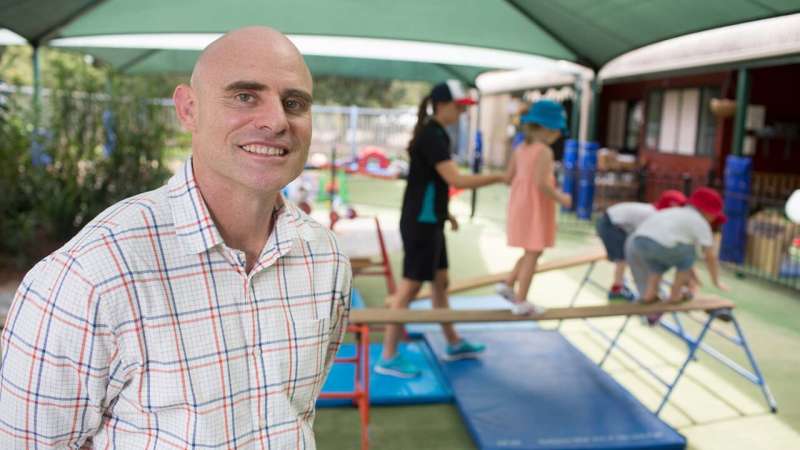

In 2017, the University of Wollongong (UOW) Early Start was awarded $1.25 million in funding from the Ministry of Health Prevention Research Support Program (PRSP). This grant allowed Early Start researchers, led by Senior Professor Anthony Okely from the School of Health and Society, to start a collaborative program of research, aimed at understanding and promoting healthy eating and physical activity among children in two age groups: newborn to age 5 (the first 2,000 days of a child’s life) and school-age children. This year, the PRSP funding was extended by another four years.
Working in collaboration with the Health Promotion Services at Illawarra Shoalhaven, South-Western Sydney Local Health Districts and the Center for Population Health, the Food and Movement Research Theme from Early Start co-developed, implemented and evaluated several projects in early childhood education and care services, including family day care and outside of school hours care settings.
“Our overarching goal has always been to better understand and promote healthy eating and physical activity in areas where children live, play and learn. As researchers, we don’t want to just work on papers; we want to have an impact,” Professor Okely said.
“At Early Start, we’ve been analyzing healthy eating and movement habits, both at home and in family day care and out-of-school environments, and then, alongside our research partners, formulating guidance for parents and educators to implement them most effectively.”
There is no doubt that early childhood educators—whether in family day care or center-based care—have a massive impact on healthy habits during the first 2,000 days of a child’s life. Georgie Tran, an Early Start researcher and a Ph.D. candidate in the School of Health and Society, alongside another recent Ph.D. student Dr. Erin Kerr, co-created a research project on Family Day Care (FDC), exploring the quality of their healthy eating and physical activity policies and environments.
“We found that in FDC, most children don’t meet their vegetable intake and only half of the children participate in enough physical activity for their age. For example, an average 2-year-old should be physically active for at least three hours a day,” Ms. Tran said.
Nationally, the bad news is that nearly one-third of young children’s dietary intake comes from discretionary foods, such as sweet and savory pastries, crisps, biscuits, processed meats, etc.
Australian children’s eating habits are not different to other parts of the world. Similar patterns have been identified in other countries, such as the United States, Mexico and Switzerland.
However, Early Start researchers are optimistic, as several good patterns have also been discovered.
“In family day care services, we observed that 99% of children were provided with fruit, which is really encouraging! We also found that mixed dishes, such as dhal and spaghetti bolognese, were more likely to have a wider range of food groups than sandwiches or wraps,” Dr. Kerr said.
Another significant area of Early Start research has concentrated on school-aged children in the Outside of School Hours Care (OSHC) sector. OSHC centers are vital for promoting healthy behaviors, as 32% of NSW children attend these services after school, and these numbers are only set to increase.
Collaborative research led by UOW Ph.D. candidates Dr. Ruth Crowe and Andrew Woods found much room for improvement in the provision of healthy foods in OSHC settings. The research discovered that although after-school services offered fruit almost every day, discretionary foods were provided more often than healthier snacks in the form of vegetables, lean meats and milk, and yogurt and cheese.
Source: Read Full Article